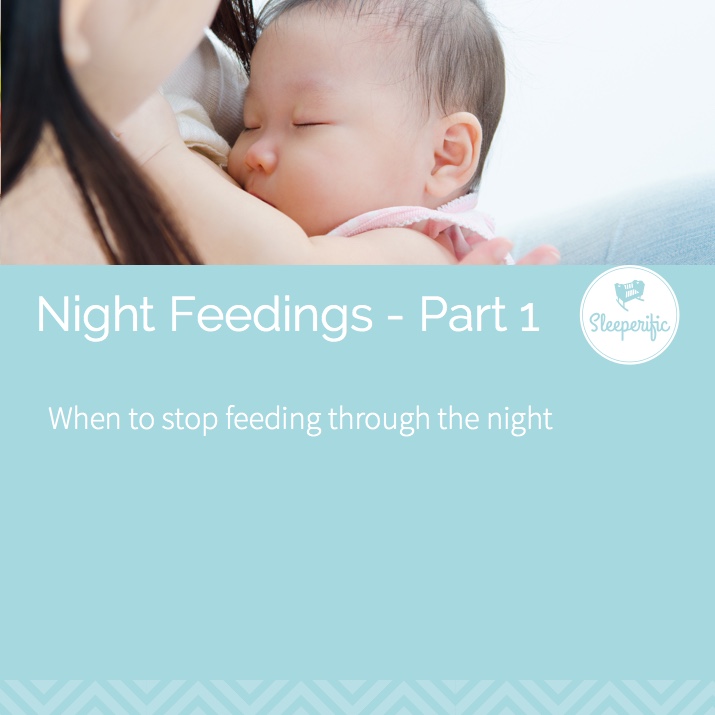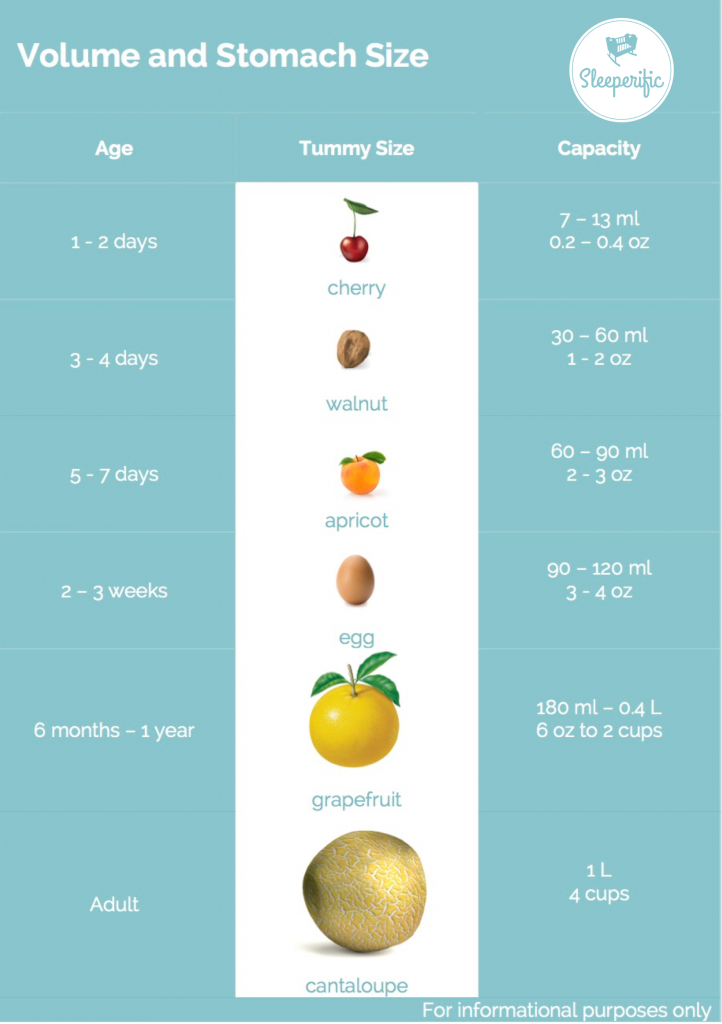Night Feedings – When to Night Wean

We all know that babies arrive with itty bitty tummies. Round the clock feedings are a regular part of parenting in those first weeks and months. Just a reminder as to how tiny those tummies really are:

But infants turn into older babies who are more capable of eating well all day and less at night. When do night feedings become unnecessary? When is it more of a habit than a necessity for survival?
Talk to Your Doctor
First and foremost, I always recommend collaborating with your medical doctor. They have been monitoring your child’s growth and development and will be able to offer insight into your particular child’s unique needs.
Your physician will likely evaluate the following along with you:
- Is baby healthy, growing well and hitting developmental milestones appropriately?
- If you’ve started solids, is baby accepting those well?
- Current age and weight
- Duration of night (when is bedtime, when is wake time)
Some information you can consider to contribute to the decision-making:
Is my baby:
- eating well? (full, quality feeding as opposed to just snacking)
- going back to sleep well? (settles back to sleep well as opposed to ready to party)
- only waking to eat? (or waking many other times)
If the answer is no to any of the above, ask yourself if the night feeding limiting your child’s ability to sleep? If the night feeding isn’t working, is it necessary to keep it?
Self-Regulation
There comes a point where you can help your child prioritize sleep at night and prioritize eating during the day. These are important strides in self-regulation. Self-regulation refers to several complex processes that allow children to appropriately respond to their environment.[1] There are many experts in child development that suggest self-regulation in eating and sleeping patterns are some of the first to emerge in children.[2] Skipping these important first steps in self-regulation can impact a child’s ability to self-regulate in thoughts, emotions and behaviours in later life.
There isn’t any one-size fits all approach to take. I don’t think there’s a cut off that “every baby” need to be fed through the night until they’re 12 lbs, 4 months or 1 year old.
Stay tuned in the coming weeks for further posts on how to eliminate night feedings and why night weaning isn’t working for your family.
xxoo
Krista
[1] Bronson, M.B. 2000. Self-Regulation in Early Childhood: Nature and Nurture. New York: Guilford
[2] Owens, Judith. “The Assessment and Management of Common Behavioral Sleep Problems in Children.” The Hospital for Sick Children, Toronto, ON. 6 March 2015. Keynote Address.
About the author:
 |
Krista is a mother of 3 (+1 dog who believes she’s people), a wife to a wonderful husband, and the owner and founder of Sleeperific. Even though she’s been in the sleep consulting biz for 4 years, she still feels excited and honoured when she’s hired by a sleepy family. |
Leave a Reply
